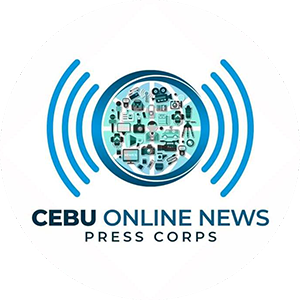Stakeholders of two waterways in San Fernando collected some 445 kilograms of non-biodegradable waste along the 150-meter coastline between the two deltas during a world-orchestrated clean-up recently.
But the activity undertaken under the government’s Adopt-an-Estero or Water Body Program generated insights to organizers to address still prevailing public indifference and mitigate the outflow of garbage into the sea.
For three years, Solid Earth Development Corp. (SEDC) adopted the coastal area of Baro beach in barangay South Poblacion and organized the clean-up with residents, the local government and associated business operators.
Over 50 individuals, including delegations from SEDC’s outsource suppliers and primary client Taiheiyo Cement Philippines Inc., gathered the human-generated debris.
Sabang River in the north and Tonggo River in the south, which flows through Luknay Creek, continuously drain waters from the town’s hinterlands towards Bohol Strait and often carry indiscriminately thrown garbage to the sea.
Bio-fence
The activity saw the need to strengthen the involvement of the residents who live along the waterway and near the shoreline, although the volume of garbage collected has significantly reduced.
“The environmental awareness of the community plays a vital role in the preservation, protection and enhancement of the environment,” noted SEDC safety, health and environment department section head Angelo O. Teopiz.
As an offshoot to the activity, Teopiz said SEDC will provide a bio-fence that will be made of recycled empty pet bottles wrapped with fishnet. It will be installed at the mouth of Sabang River, he disclosed.
The bio-fence will trap the garbage and prevent materials from going to the sea, he explained, adding that his team will undertake a fresh round of information, education and communication drives about its purpose.
“We need our neighbors to be more vigilant and appreciate their role to protect our environment, and never be complacent about it, even if we will put up the bio-fence,” Teopiz pointed out.


Eco footprint
SEDC is a large-scale non-metallic mining company that supplies TCPI with raw earth materials. It holds a mineral production sharing agreement with the government that has also granted it a foreshore lease contract and permit to operate a private non-commercial port facility.
The company took over the mining and port operations from Grand Cement Manufacturing Corp. back in the year 2000. It has been committed to provide quality raw materials through responsible exploration, development, and utilization of mineral resources.
SEDC is fully committed to sustainable development and conservation of the environment through strict implementation of its environmental policy that aims to reduce our environmental footprint through:
a) The conduct activities in compliance with all applicable environmental regulations;
b) A systematic environmental management geared towards the delivery of quality raw materials and people development, as well as protection of Mother Earth within the framework of sustainable development;
c) Environmental protection programs through systematic development and efficient continual energy and material conservation efforts;
d) The implementation of pollution control and prevention programs;
e) Programs that educate, train and motivate stakeholders to carry out tasks in an environmentally responsible manner;
f) Environmental protection among vendors and interested parties with consideration to the life cycle impacts and their aspects.

SEDC demonstrates social responsibility through effectively carrying out its Social Development and Management Program that empowers host and neighboring communities through capacity building, enterprise development and provision of support for infrastructure, health and education.

